Knee Replacement Surgery
Normal knee joint
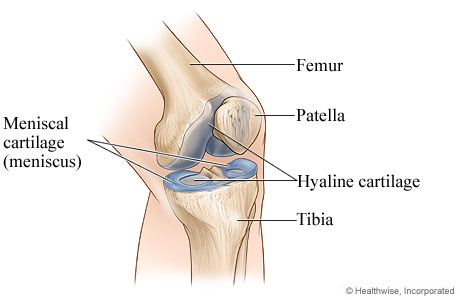
Inside a normal knee joint, thick cushioning (cartilage) covers and protects the ends of your bones. This is called hyaline cartilage. Another type of cartilage, called meniscal cartilage or meniscus, acts like a shock absorber between the bones and keeps the knee joint stable by spreading out the load evenly across the joint. The two menisci (plural of meniscus) protect and cushion the surface of the joint and the ends of your bones.
Osteoarthritis of the knee
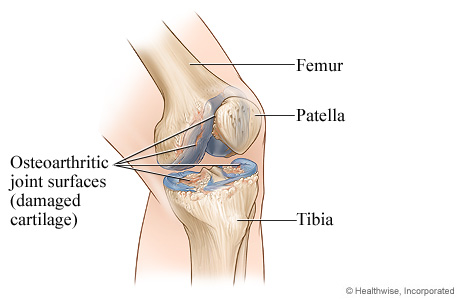
In osteoarthritis, the cartilage that protects and cushions the knee joint breaks down over time. As the cartilage wears down, the bone surfaces rub against each other. This damages the tissue and bone, causing pain. Osteoarthritis is common in the knee joints.
Femoral component is placed
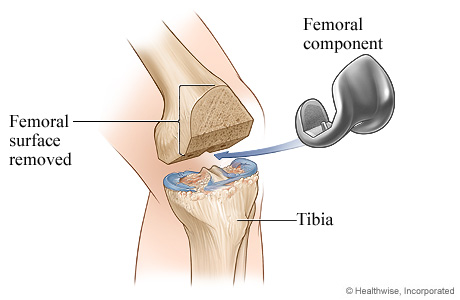
Removal of damaged cartilage from the lower end of the femur and placement of the femoral component
Tibial component is placed
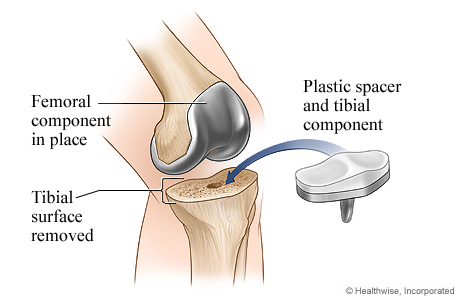
Removal of damaged cartilage from the upper end of the tibia and placement of the tibial component
Patellar component is placed
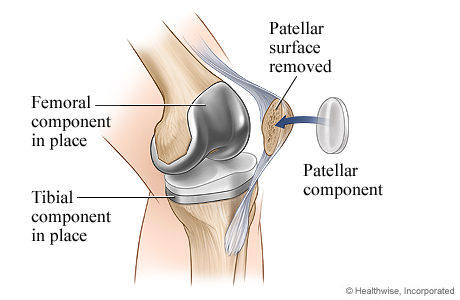
Removal of damaged cartilage from the patella and placement of the patellar component
Knee replacement surgery is complete

Completed knee replacement
Current as of: March 21, 2017
Author: Healthwise Staff
Medical Review: Anne C. Poinier, MD - Internal Medicine & Kenneth J. Koval, MD - Orthopedic Surgery, Orthopedic Trauma & David Bardana, MD, FRCSC - Orthopedic Surgery, Sports Medicine